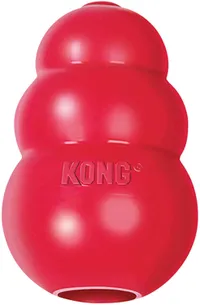My dog doesn't like toys: what's going on and how to fix it
Wondering why your dog doesn’t like toys? Here are four reasons why and how to get them interested again.
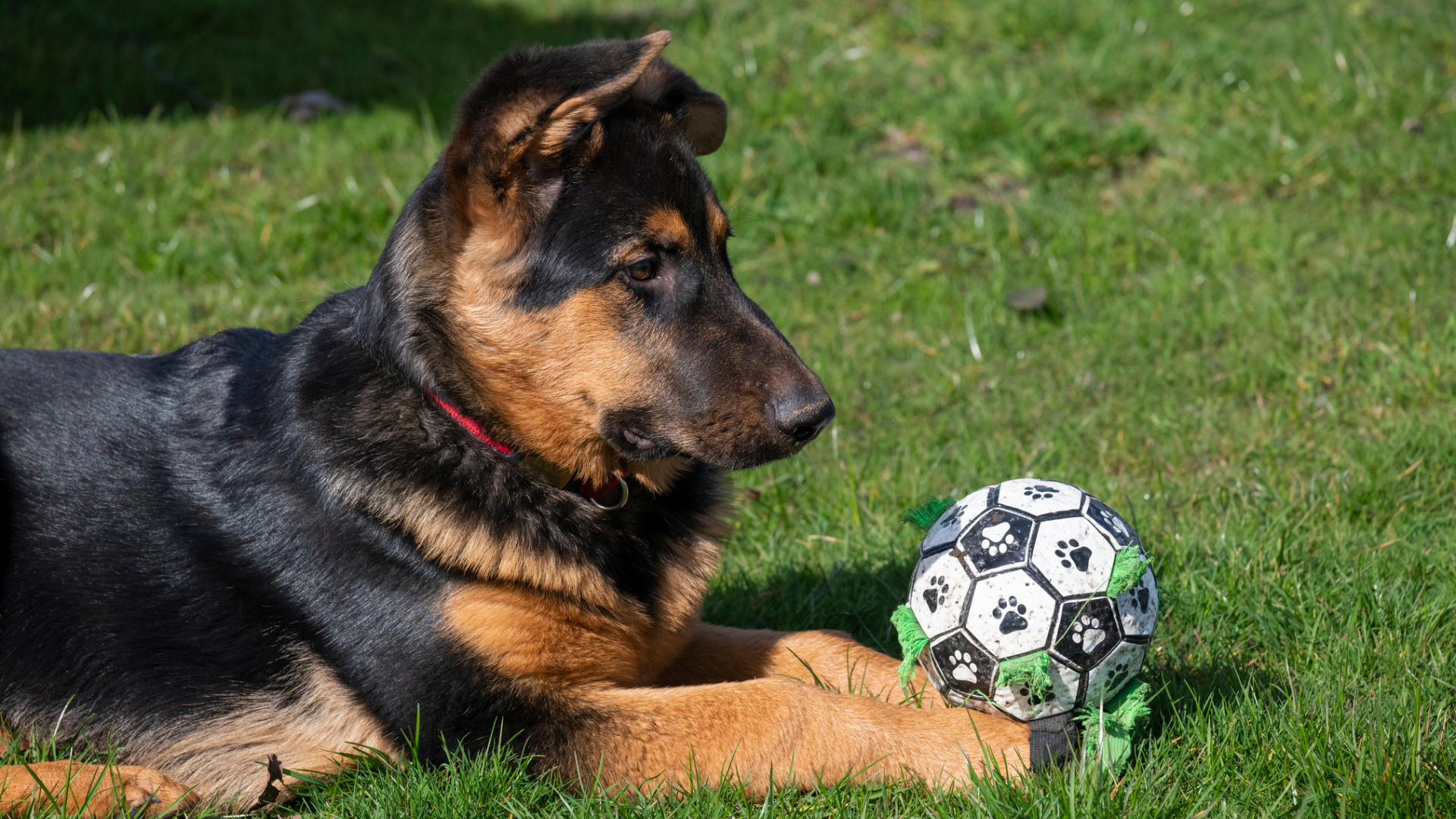
"My dog doesn’t like toys, what should I do?” This question is more common than you think. You might expect all pups to be playful, but this isn’t always the case — some just need a little more encouragement than others.
If you’ve stocked up on the best dog toys or best puppy toys and they’re still not interested, then you’re probably feeling quite confused (and disappointed!) After all, the last thing you want is to waste money on things they don’t even want to use.
The good news? There are ways that you can help, like introducing ‘long rewards’ which we’ll get into later on. First things first, you need to get to the root of the problem and understand why they don’t like their toys. Perhaps they weren’t socialized as a puppy or maybe they need food motivation instead – either way, there’s always something you can do!
To find out why your dog doesn’t like toys and learn how to help them, keep on reading:
Why does my dog not like playing with toys?
Here are a few reasons your dog may not like toys:
1. You may not have found the right toys yet. Your dog may prefer tug-of-war games to fetch, or may like crinkly sounds versus squeaking toys. You may have to try out several different types of toys to see what kind your dog likes.
2. You don't swap up the available toys enough. If you only have a few toys around the house and your dog has seen the same few for days, months, or even years, they may not find those toys very exciting.
Get the best advice, tips and top tech for your beloved Pets
3. Your dog doesn't know how to play. Whether your dog is a rescue from a less-than-stellar situation or a new puppy, your dog may not have learned what play is just yet. Again, there's no intrinsic value to toys if your dog doesn't understand playing, and they may just see them as weird things on the ground. Canine behavioral expert Anthony Newman tells PopSugar, "Toys are interactive. For a dog to enjoy playing with a toy, they have to be playing with someone."
4. Your dog wasn't socialized properly as a puppy. This is a similar to reason number three. Newman says that, "dogs need other dogs, the way kids need other kids. We can try to entertain our kids and give them guidance, teaching, structure, comfort, and confidence in ways other kids can't – but we can't be goofy, silly, playful, and connect on the same level with them that other kids can."
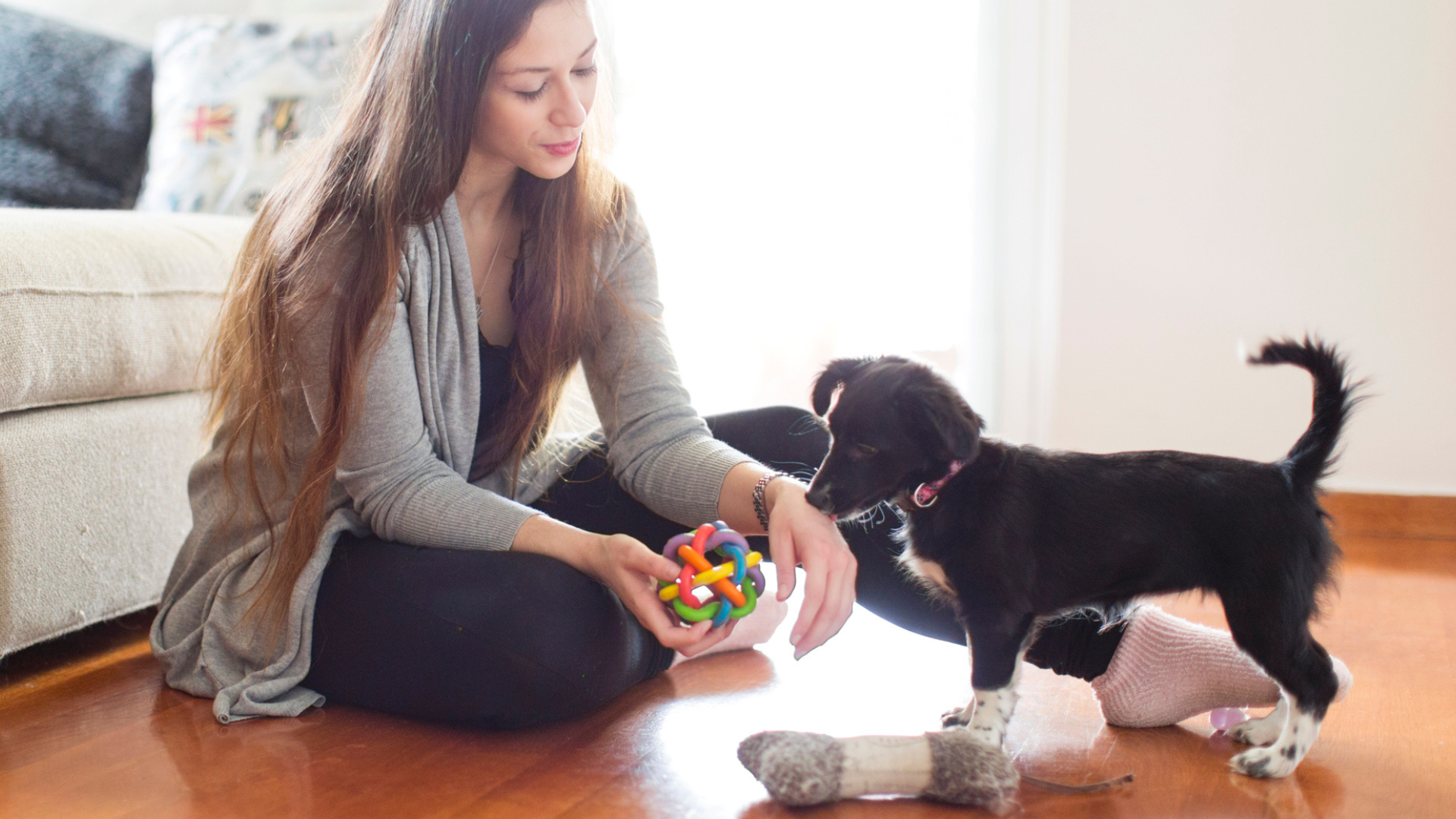
How to get your dog interested in toys
You need to get your dog to associate toys with playtime and rewards. Start by trying to lure your dog over to whatever toy you have on hand with a treat, making sure you seem excited to see if your dog will match your energy level. If they acknowledge the toy and engage in some type of play, give them a treat. You can also try teaching them fetch by tossing treats, then eventually swap the treat out for a toy.
You can also get your dog interested in what Newman calls "long reward" toys which are just toys that are mixed with treats, like a Kong stuffed with peanut butter or chews like bully sticks. "Often when an owner is searching for a toy to entertain their dog, what they're looking for is more suited to a long reward than a toy." If your dog is food motivated, then this may be the kind of toy for them.
Change up the toys that are available to your dog. If they have easy access to a toy bin, swap out the toys that are available to them. They won't get bored with what's available to them if they see something new in there once in a while.
You can also try to encourage your dog to play right before they get their food. Instead of making a toy available all the time, or after they eat, give your dog a toy right when they think it's dinner time, then reward with dinner after they play a little.
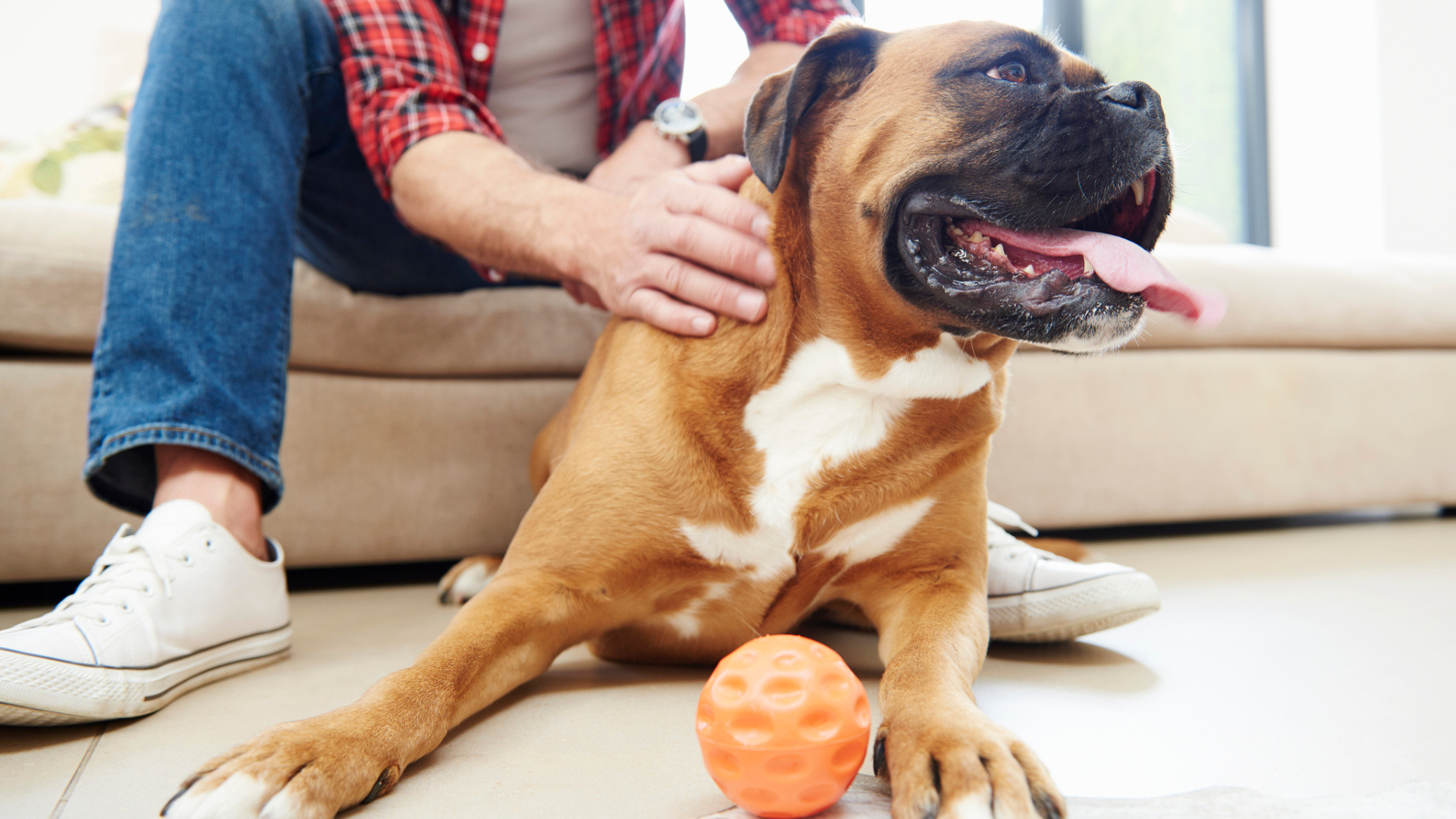
Dog owner Tiff says: “My 15-year-old morkie is highly treat-motivated. One thing we've noticed as she got older was her transition from playing with toys to only playing with snuffle toys. As a puppy and young dog, she loved tearing apart plushies and soft toys. I'd have to buy heavy-duty Kong toys because she'd always wreck her toys within a week. However, as she got older, she started losing interest in plushies or squeaky toys.
“We transitioned her over to puzzle and snuffle toys. We bought her puzzles [...], hiding treats in chambers [that are] designed to make her sniff and use her nose/paws [...]. We also gave her snuffle mats and snuffle balls, hiding stinky treats in different pockets where she had to sniff them out. We found that these mental stimulation toys not only kept her engaged but wore her out the way exercise would.”
If your dog doesn’t like to play, but they’re food-motivated, then it’s worth investing in a Kong toy. Simply stuff it with your pup’s favorite treats and they’ll find it hard to resist. Not only does it help to reduce boredom and anxiety, but it can be a great workout for them.
How to entertain a dog that doesn't like toys
If your dog doesn't like toys and isn't interested in the long reward toys, you can still keep them entertained. Walking your dog or taking them on runs is a great way to expel energy. If they're dog friendly, let them have puppy playdates or bring them to the dog park. Take them in the car if it makes them happy, or give them a nice long rub while watching your favorite show.
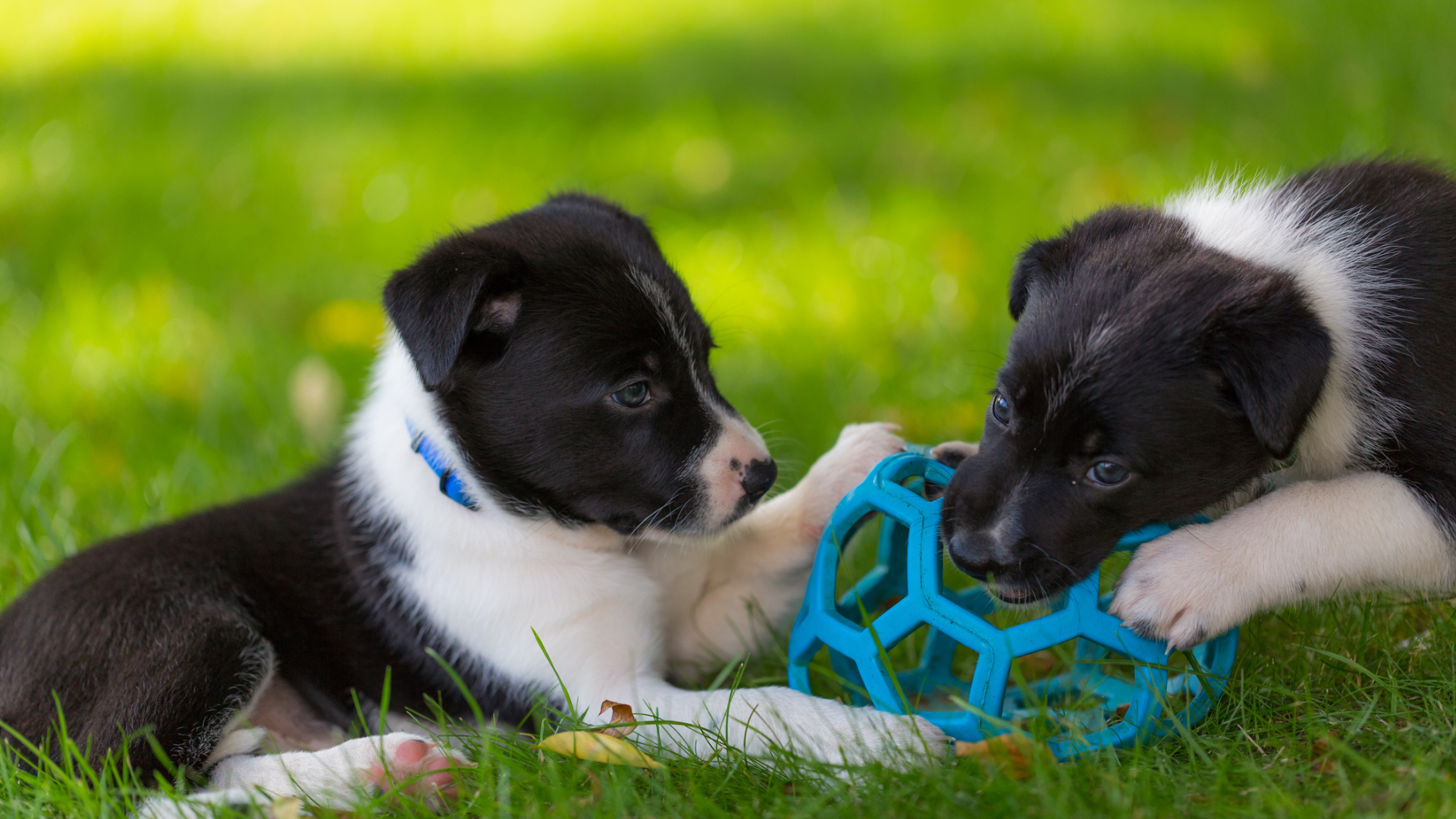
If your dog doesn't like toys, there are ways to teach them how to love to have fun. Whether that's by treating food as a reward for play or by incorporating play more into your daily routine, you can certainly get your dog more accustomed to toys. Maybe they'll fall in love with a new rope toy, or obsess over one of those chew toys that's just a water bottle sewn into a stuffed animal – whatever it is, there's probably a toy out there for your dog.
If your dog was interested in toys and is suddenly uninterested, you should visit your vet as there could be an underlying health condition at play.
For more advice like this, read: How to play with a puppy: Tips for pooch playtime and how to play hide and seek with your dog.
- Megan MilsteadStaff Writer
